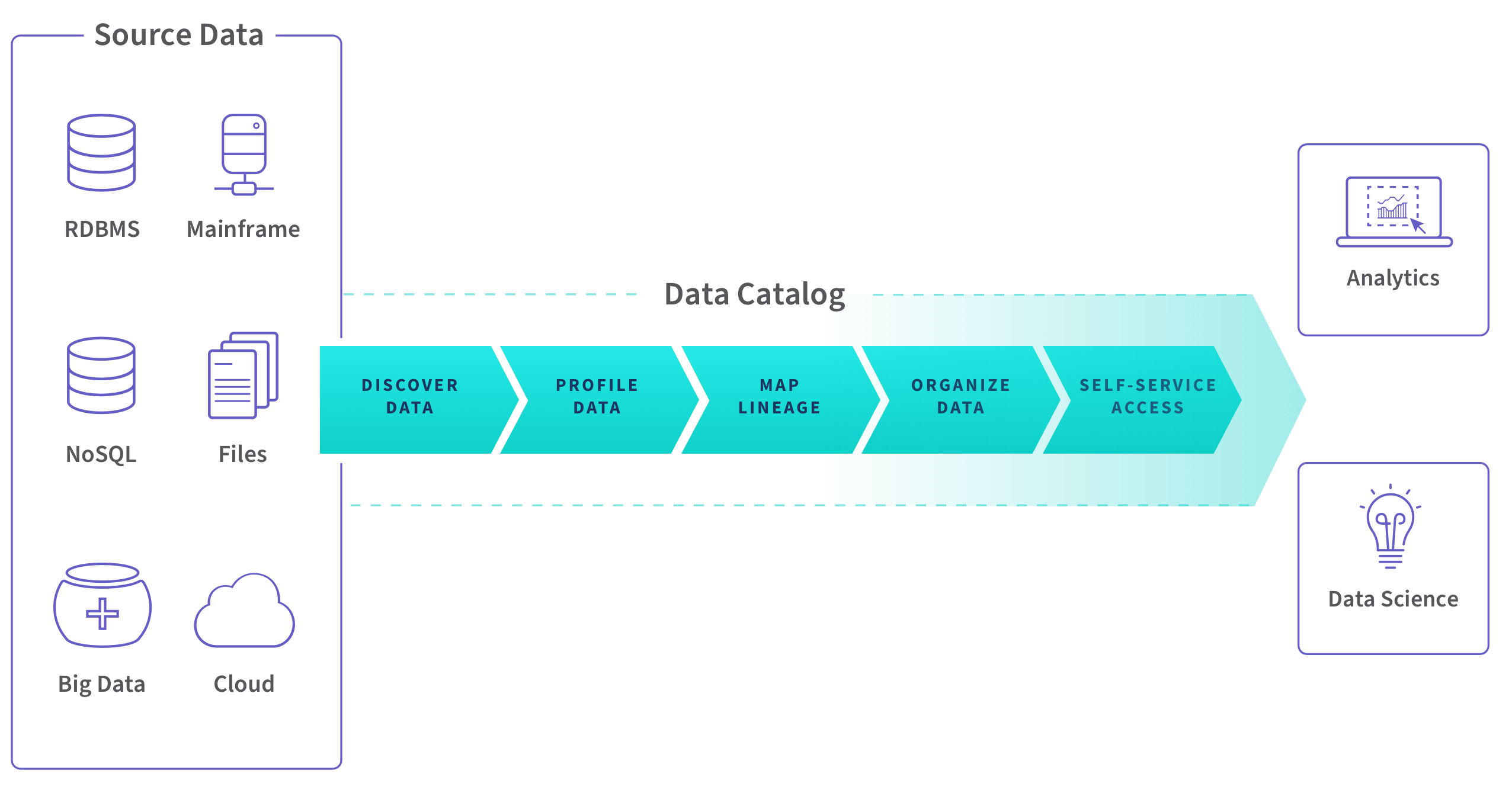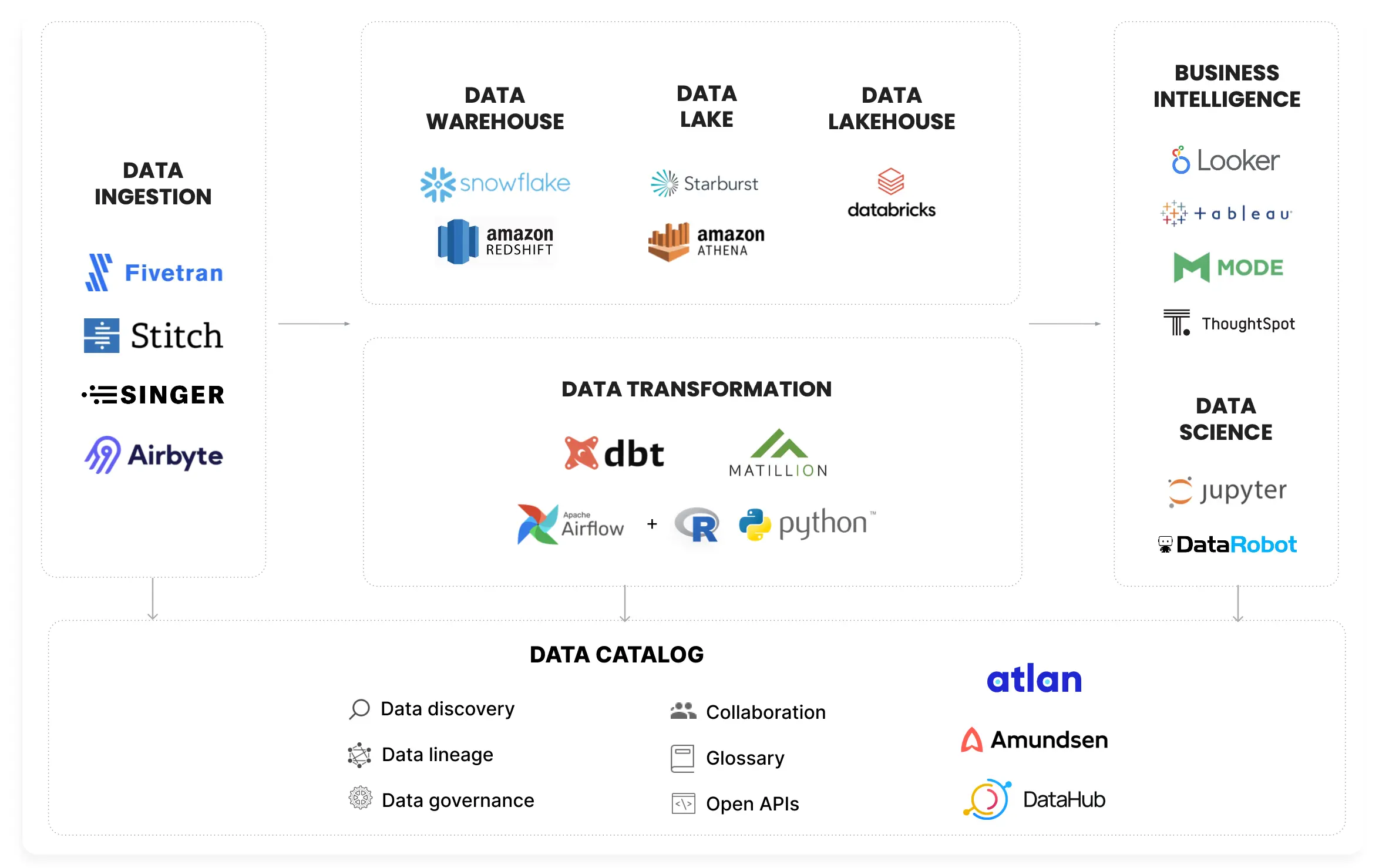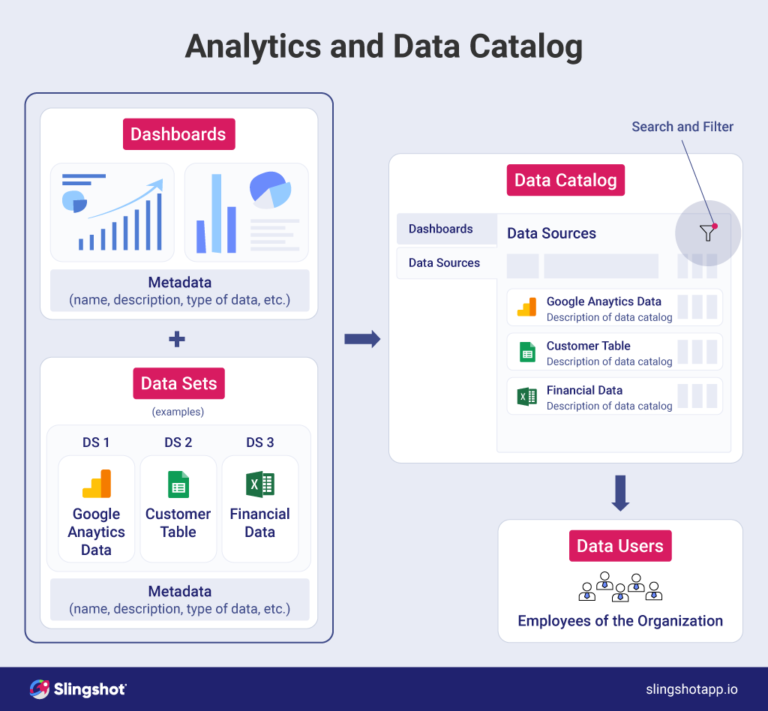Modern Data Catalog
Modern Data Catalog - They provide a comprehensive inventory of data and metadata, increasing data consumers’ ability to search and discover. Data cataloging is creating and maintaining a centralized inventory of an organization’s data assets. By providing a centralized repository of metadata, a data catalog enables organizations to quickly and effectively manage, search, and understand their data products. Data catalogs are becoming a core component of modern data management, allowing all business users to easily find and access data to accelerate time to insights. But the modern data catalog can — and should — do so much more. They act as a centralized inventory of all available data, along. Data cataloging is the process of creating and maintaining a centralized and organized repository of metadata and information about the data assets within an organization. Data catalogs leverage metadata to allow data consumers to quickly search an organization’s entire data landscape, understand the data available to them and operationalize. Data catalogs enable the organization of ownership, definitions, and relationships for the right data. A modern data catalog is a tool used to organize, manage, and discover data assets within an organization. A data catalog helps organizations organize, discover, and manage their data assets effectively. What is a data catalog? It’s a central repository that stores. Conceptually, data catalogs are simple: Data catalogs are becoming a core component of modern data management, allowing all business users to easily find and access data to accelerate time to insights. Use data catalog tools to increase visibility into what data exists. Build a better businessvm deployment in seconds90+ compliance offerings Explore how data catalogs streamline data governance, improve data. By providing a centralized repository of metadata, a data catalog enables organizations to quickly and effectively manage, search, and understand their data products. Modern data stacks might integrate “privacy vaults” or similar. They provide a comprehensive inventory of data and metadata, increasing data consumers’ ability to search and discover. Use data catalog tools to increase visibility into what data exists. Data catalog tools are data platforms that help organizations manage and understand their data assets. The purpose of a data catalog is to provide a comprehensive. It’s a central repository that stores. Data catalogs maintain the inventory of all data assets within an enterprise. Modern data stacks might integrate “privacy vaults” or similar. Conceptually, data catalogs are simple: Data catalogs enable the organization of ownership, definitions, and relationships for the right data. By providing a centralized repository of metadata, a data catalog enables organizations to quickly and effectively manage, search, and understand. Data catalogs maintain the inventory of all data assets within an enterprise. Data catalog tools are data platforms that help organizations manage and understand their data assets. What is a data catalog? Here we describe the key tenets of a modern data catalog and the enhanced outcomes from implementation of modern data catalogs. The purpose of a data catalog is. They provide a comprehensive inventory of data and metadata, increasing data consumers’ ability to search and discover. We’ll outline best practices and keys to success in. What is a data catalog? It’s a central repository that stores. Data catalogs are becoming a core component of modern data management, allowing all business users to easily find and access data to accelerate. Modern data stacks might integrate “privacy vaults” or similar. With the launch of sap business data cloud (bdc), the data catalog and the data marketplace tabs in sap datasphere are being consolidated under a single tab, called. A data catalog helps organizations organize, discover, and manage their data assets effectively. Data cataloging is creating and maintaining a centralized inventory of. Build a better businessvm deployment in seconds90+ compliance offerings Use data catalog tools to increase visibility into what data exists. Data cataloging is creating and maintaining a centralized inventory of an organization’s data assets. But the modern data catalog can — and should — do so much more. Data catalogs are becoming a core component of modern data management, allowing. We’ll outline best practices and keys to success in. Here we describe the key tenets of a modern data catalog and the enhanced outcomes from implementation of modern data catalogs. This article examines different types of. But the modern data catalog can — and should — do so much more. Modern data stacks might integrate “privacy vaults” or similar. Data cataloging is the process of creating and maintaining a centralized and organized repository of metadata and information about the data assets within an organization. They act as a centralized inventory of all available data, along. We’ll outline best practices and keys to success in. Use data catalog tools to increase visibility into what data exists. By providing a centralized. Use data catalog tools to increase visibility into what data exists. Data cataloging is creating and maintaining a centralized inventory of an organization’s data assets. Data catalogs maintain the inventory of all data assets within an enterprise. But the modern data catalog can — and should — do so much more. They provide a comprehensive inventory of data and metadata,. Here’s our take on the five critical capabilities that make a data catalog the best solution to align. But the modern data catalog can — and should — do so much more. Don’t forget unstructured data (text,. They act as a centralized inventory of all available data, along. Data cataloging is the process of creating and maintaining a centralized and. They provide a comprehensive inventory of data and metadata, increasing data consumers’ ability to search and discover. Modern data stacks might integrate “privacy vaults” or similar. A modern data catalog is a tool used to organize, manage, and discover data assets within an organization. Data catalog tools are data platforms that help organizations manage and understand their data assets. Conceptually, data catalogs are simple: It’s a central repository that stores. Data cataloging is the process of creating and maintaining a centralized and organized repository of metadata and information about the data assets within an organization. Data catalogs maintain the inventory of all data assets within an enterprise. Explore how data catalogs streamline data governance, improve data. Data catalogs leverage metadata to allow data consumers to quickly search an organization’s entire data landscape, understand the data available to them and operationalize. The purpose of a data catalog is to provide a comprehensive. Don’t forget unstructured data (text,. Here’s our take on the five critical capabilities that make a data catalog the best solution to align. Data catalogs enable the organization of ownership, definitions, and relationships for the right data. Exploring the role of data catalogs and semantic layers is essential for effective data governance, accessibility, and integration. Here we describe the key tenets of a modern data catalog and the enhanced outcomes from implementation of modern data catalogs.Alation on LinkedIn Implementing a Modern Data Catalog Alation
Data Catalog Vs. Metadata Management Differences, and How They Work
Top 3 Must Haves for Data Catalogs DvSum
Data Catalog Components, Criteria, & Future as Data Copilots
Modern Data Catalog Catalog Library
Modern Data Catalog Tool for Data Discovery Secoda
How To Plan and Launch Your Modern Data Catalog Datadotworld PDF
What is a Data Catalog? (And Why You Need One)
Data Catalog vs. Data Lineage Differences, Use Cases and More
What Is A Data Catalog & Why Do You Need One?
By Providing A Centralized Repository Of Metadata, A Data Catalog Enables Organizations To Quickly And Effectively Manage, Search, And Understand Their Data Products.
Data Cataloging Is Creating And Maintaining A Centralized Inventory Of An Organization’s Data Assets.
What Is A Data Catalog?
This Article Examines Different Types Of.
Related Post:

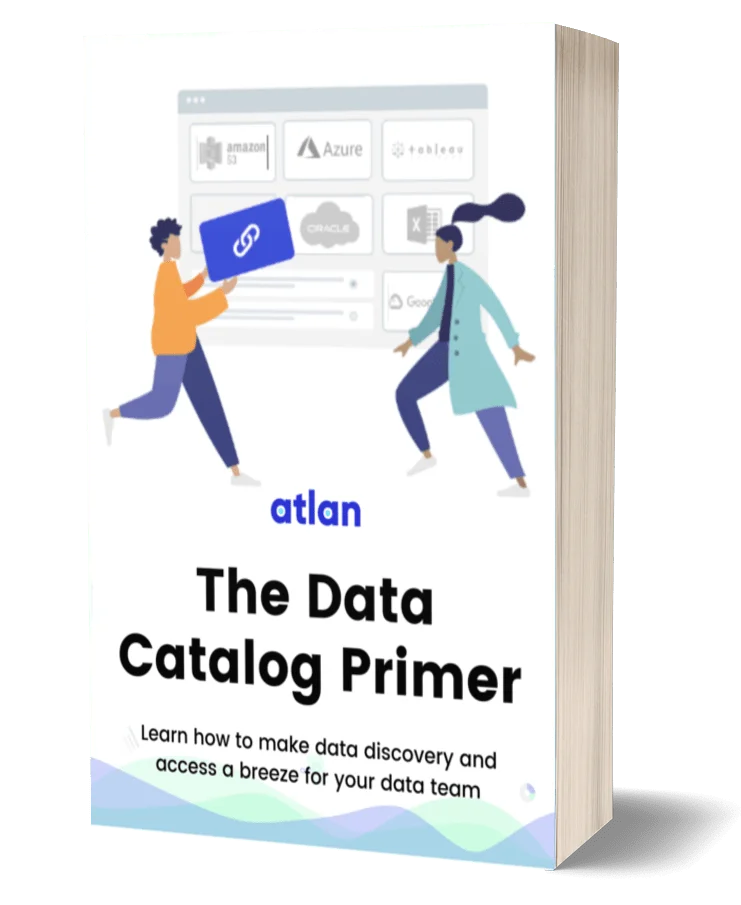

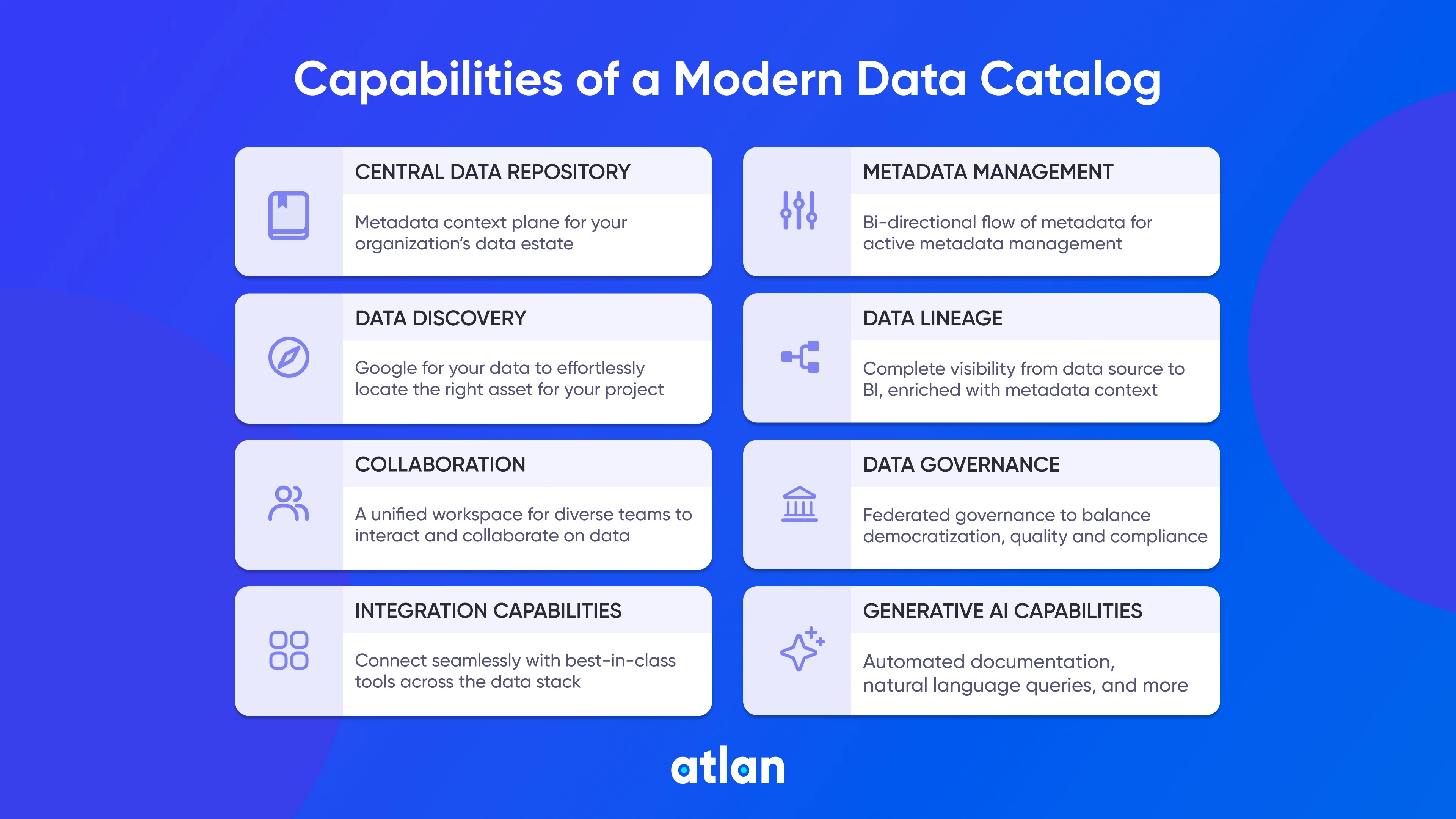
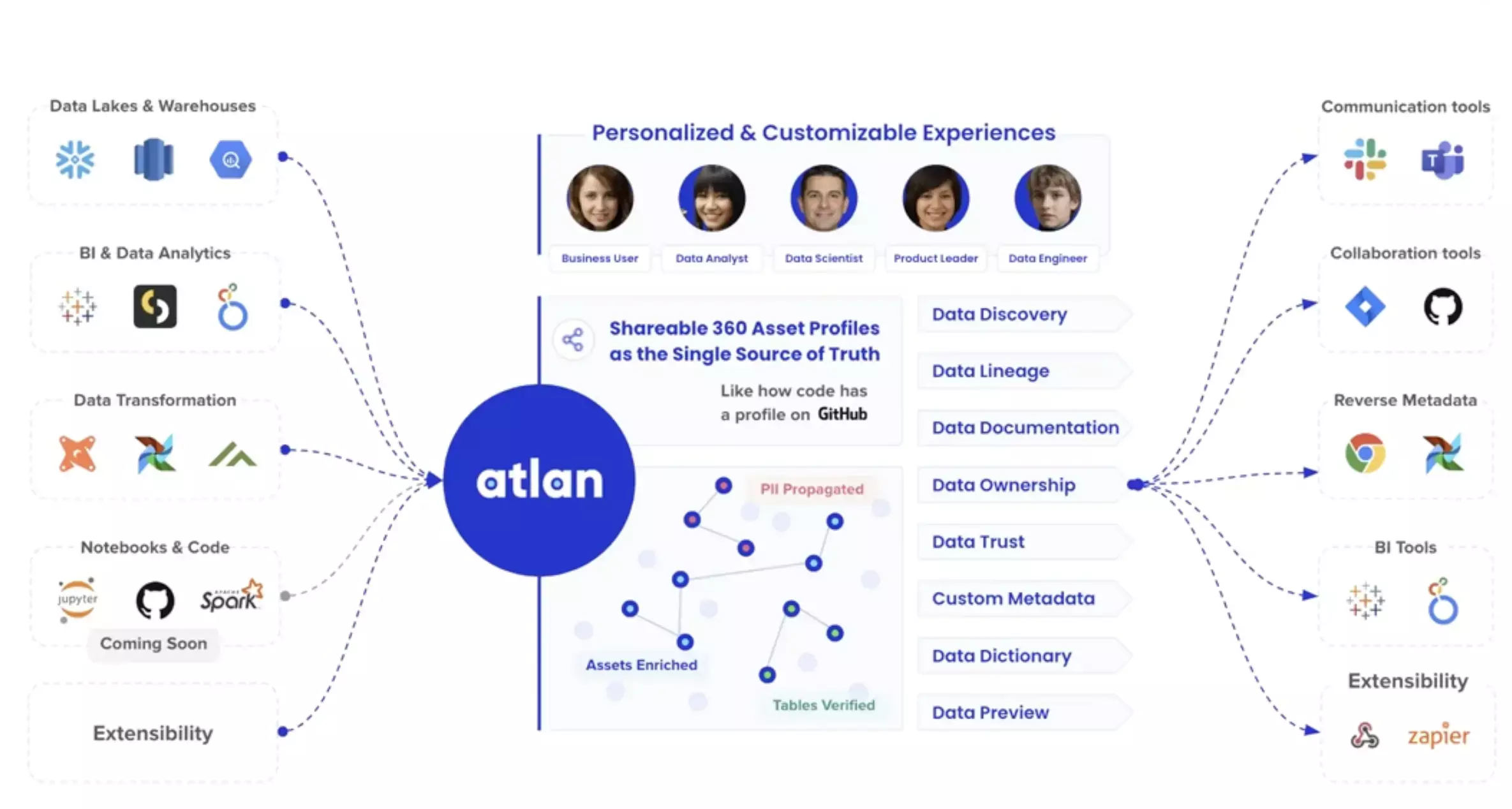
-p-2000.png)

